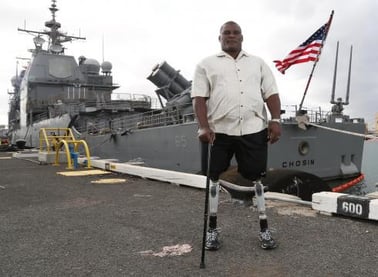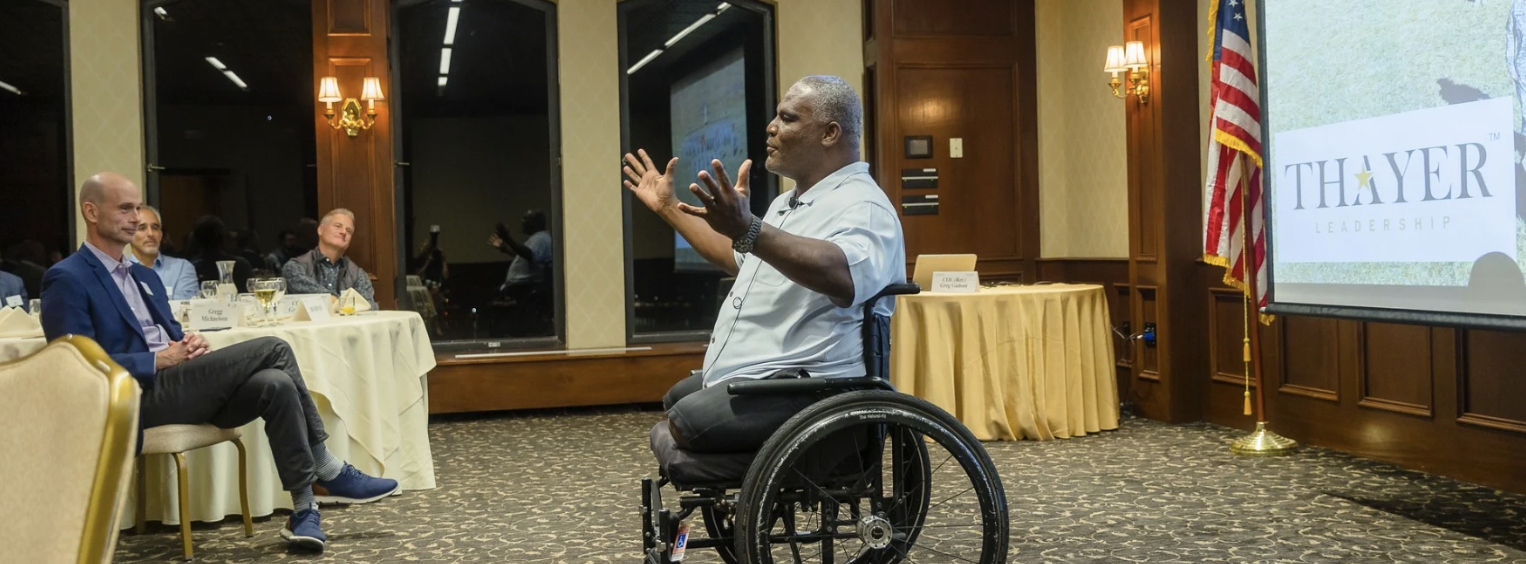I’ve looked forward to our annual CEO Summit for months, particularly given that this was the first time we’ve held the event in-person in three years (for obvious reasons).
The US Military Academy at West Point was the perfect location to gather >70 CEOs and board directors to learn best practices on leadership, communication, and teamwork. Not to mention, under the event’s theme Mission Certainty Amid Uncertainty... on Veteran’s Day. It was meant to be.
Participating in the 2.5-day leadership development experience was invaluable. We had a wide variety of impressive speakers from Alex Gorsky, Executive Chairman and former CEO of Johnson & Johnson, to best-selling author Ryan Holiday, in addition to several of our nation's most celebrated military leaders.
But the speaker who struck me the most was retired Colonel Greg Gadson, who many of you know from his role in the film "Battleship."

Col Gadson shared his learnings about the value of leadership in the aftermath of a grievous war injury. The attack on his team in Afghanistan came as a surprise, but in a moment of crisis, his team stepped up and made decisions that saved multiple lives. These four key leadership lessons really stuck with me.
-
TRUST. Specifically, the importance of building and growing a team that you would trust with your life. He advised knowing the strengths, skills, and expertise of your teammates to help them grow where weaknesses or blind spots exist. While we may not frequently encounter life/death scenarios in our day-to-day work, the lesson here is an important one: trust that you have a team that can perform when it’s most important.
-
EMPOWERMENT. Centralized decision-making creates unnecessary key man risk, and the key to diversifying that risk is empowerment. Greg encouraged us to imagine a scenario where his team was not empowered to make the decisions necessary to save his life. Taking out the leader would have eliminated the effectiveness of the entire team. He (and likely the other soldiers) would not have survived the surprise attack without this mindset. Empowering your organization to make their own decisions and judgment calls mitigates risk and improves the overall efficacy of the entire team.
-
ACCOUNTABILITY. In order to foster accountability, communication is extremely important. Every member of your team should know your expectations and vice versa. The leader should be just as accountable to the team as every member for maximum effectiveness. Empower everyone to make their own decisions in confidence.
-
MINDFULNESS. Being a leader means being attuned, not only to the team's needs but also to the dynamic needs of a situation. Leadership is dynamic and no two days are the same. Your journey is constantly evolving. While you do not always have control over outside factors, a true leader recognizes the control they do have over their own actions.
Throughout my career, my time in business school, and my time in the tech industry, I’ve come to know many acronyms: SWOT, BATNA, MEDDPICC, ZOPA. I’ve called on them through the years. But Colonel Gadson offered new, deeper meaning to perhaps the most important acronym for leaders: TEAM. Because with Trust, Empowerment, Accountability, and Mindfulness, Together, Everyone Achieves More.


